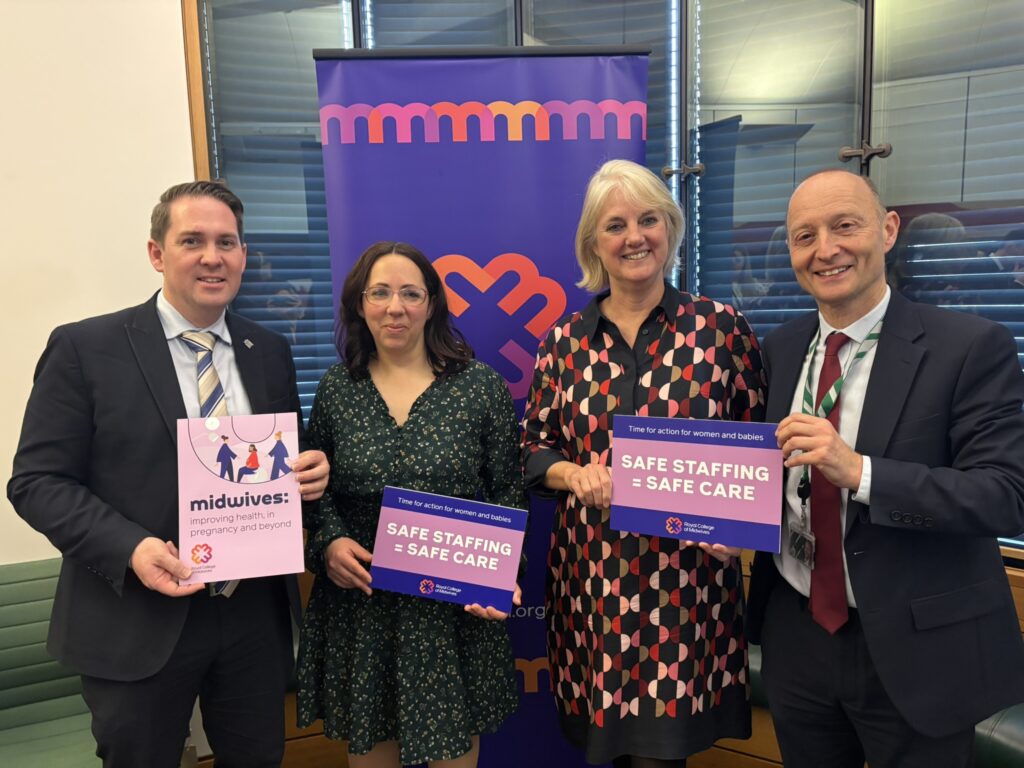Supporting women’s choices in maternity care isn’t just about autonomy – it’s central to protecting mental wellbeing and ensuring safer outcomes for women and babies. In this blog, Lia Brigante, Professional Policy Advisor at the RCM, explains how personalised care, informed choice and the RCM’s Perinatal Mental Health Roadmap are helping midwives deliver care that truly puts women at the centre.
The Royal College of Midwives (RCM) has always championed woman-centred care. It has been at the heart of our policy, and at the core of UK maternity policy, for decades. We know that personalised care is safer care, and that supporting women to have choice and control over their birth experience improves outcomes for them and their babies.
Recent public discussions about home birth and care outside national guidance have highlighted how complex these conversations can be: for women, families, and midwives alike. Yet they have also reminded us of what really matters in maternity care: listening, trust and supporting informed choice.
Midwives are uniquely placed to advocate for women’s choices and to navigate these often complex situations with compassion and professionalism. The RCM has developed its own Care Outside Guidance advice to help midwives do exactly that. It provides clear principles to support women making choices that fall outside standard clinical recommendations, grounded in the principles of informed consent and the UK legal framework.
We know that birth experiences can have a profound psychological impact. Many women who seek alternative birth choices do so after experiencing trauma, loss of control, or poor treatment during a previous birth. For these women, being listened to and supported to make their own choices can be the first step towards healing.
That is why the RCM has launched its Perinatal Mental Health Roadmap, which sets out our priorities for improving mental health care during pregnancy and the first year after birth. The roadmap calls for every maternity service to have a specialist perinatal mental health midwife, and for all maternity professionals to be equipped with the knowledge and confidence to recognise and respond to mental health needs. It also emphasises that mental health must be treated with the same importance as physical health throughout the perinatal period.
When women’s psychological and emotional needs are met, when they are respected, believed, and supported to make the decisions that are right for them they are more likely to engage with maternity services and experience better outcomes. Supporting informed choice is not only a matter of legal and professional responsibility; it is an essential part of protecting mental wellbeing and ensuring safer care for all.
Midwives themselves also need support. Working within complex and sometimes fragmented systems can create tension between duty of care and a woman’s choices. The RCM’s guidance is designed to give midwives the confidence, tools, and professional backing to provide safe, personalised care, even when that care falls outside the usual pathway. It encourages collaborative working and an organisational culture rooted in respect and trust.
Ultimately, woman-centred care means seeing each woman as an individual: her history, her hopes, her fears and recognising that safe care is not only about clinical risk, but also about emotional and psychological safety.
As midwives, we know that listening is powerful. When we listen to women and trust them to make informed decisions, we build relationships that make care safer and more compassionate.


